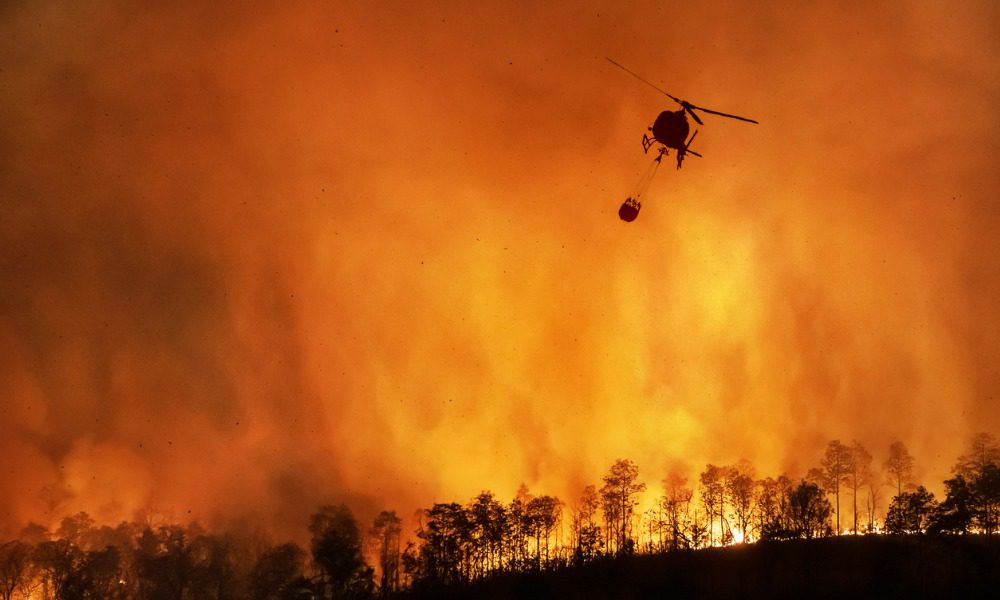Canadian researchers work on new tech to improve wildfire prediction

Canadian researchers work on new tech to improve wildfire prediction | Insurance Business Canada
Catastrophe & Flood
Canadian researchers work on new tech to improve wildfire prediction
New tools could save billions and protect key infrastructure
Catastrophe & Flood
By
Mika Pangilinan
In the aftermath of a devastating wildfire season, Canadian researchers have begun work to develop new predictive technology that could save billions of dollars and protect essential infrastructure across North America.
A pair of researchers from the University of British Columbia’s Okanagan campus are among the first experts to join the newly established US-Canada Centre on Climate-Resilient Western Interconnected Grid, which aims to enhance wildfire prediction models and ensure better data access to mitigate or prevent damage to power supply.
Dr. John Braun, a professor of mathematics and statistics at the university, has been focused on redefining wildfire modeling techniques. His research challenges the limitations of traditional deterministic models by incorporating stochastic models that account for uncertainties.
“Today’s technology allows us to gather much more high-quality data than even a decade ago,” he said.
Modern tools can prevent huge losses
In a recent analysis, Braun highlighted how existing deterministic models failed to provide timely and precise predictions during the 2016 Fort McMurray wildfire.
According to Braun, officials may have been able to properly allocate resources if they had access to more advanced tools in 2016.
“Initial calculations showed a 5% probability that the fire could reach the city limits by 6 or 7 pm—which is actually about when it did,” he said. “If they had known this, they might have made a different decision. These models serve as essential decision support tools, improving both infrastructure safety and firefighting efforts.”
The Fort McMurray wildfire ranks as one of Canada’s costliest natural disasters for insurance payouts, with the Insurance Bureau of Canada (IBC) pegging losses at $4.3 billion.
IBC also referred to the Shuswap and Okanagan fires as the costliest insured event in British Columbia’s history.
Addressing the challenges posed by climate change
Braun is not alone in his efforts to enhance wildfire prediction and mitigation. He also collaborates with Dr. Kevin Hanna, an associate professor in earth sciences and the director of UBC’s Centre for Environmental Assessment Research.
Hanna’s work focuses on risk and vulnerability assessments for approving power projects in Canada. He said his research aims to establish robust processes for assessing risk and safety along electric transmission routes to ensure they can withstand sudden events like wildfires.
“This project provides a unique platform to unify various research disciplines for addressing energy resiliency and security in the face of evolving climate challenges,” Hanna said.
As part of the US-Canada Centre on Climate-Resilient Western Interconnected Grid, Braun and Hanna join researchers from 11 North American universities and research institutes looking to address the escalating challenges posed by wildfires, heatwaves, drought, and flooding.
The Western Interconnected Grid serves approximately 80 million people over 4.66 million square kilometers. It stretches from the northern edge of British Columbia to the Mexico border and from the California coast to the Rockies.
What are your thoughts on this story? Feel free to comment below.
Related Stories
Keep up with the latest news and events
Join our mailing list, it’s free!






